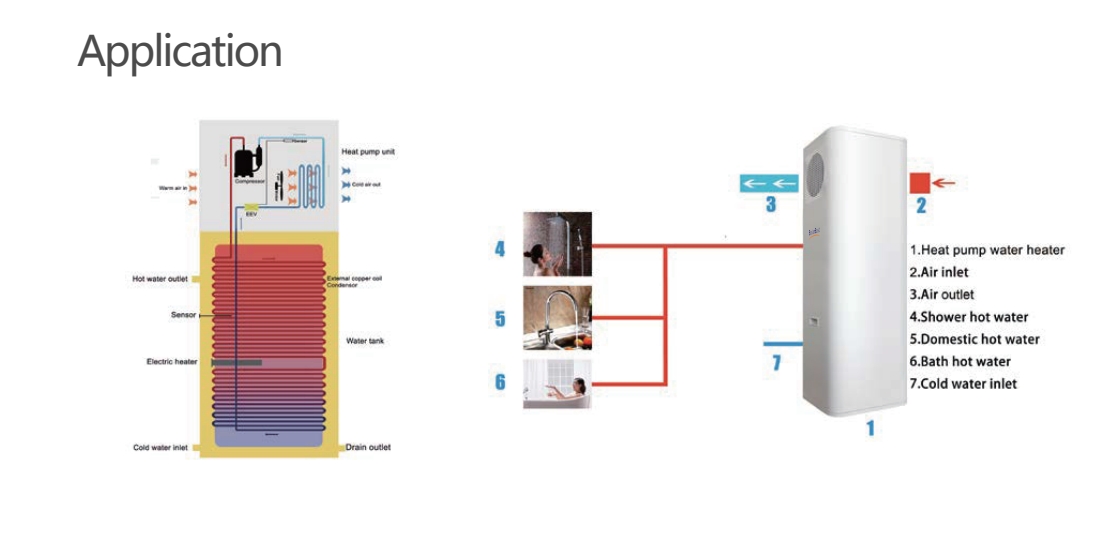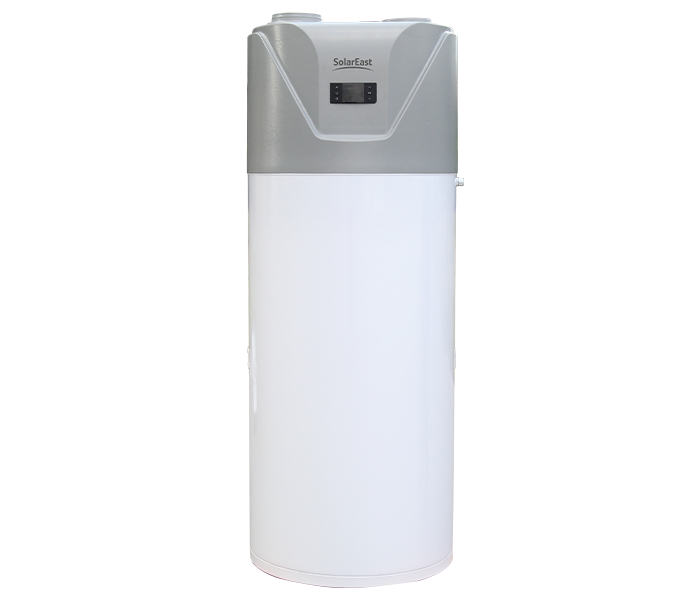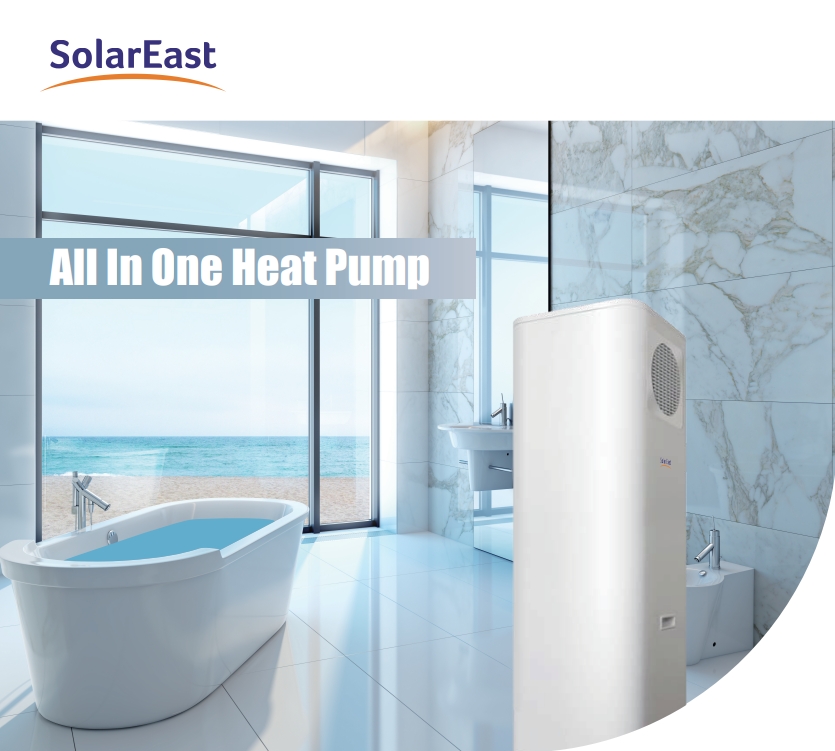As energy efficiency becomes more of a priority for businesses and builders alike, the demand for advanced water heating solutions continues to rise. One such solution is the all-in-one heat pump, a system that integrates both heating and water heating functions, offering superior energy efficiency and cost savings.
In this guide, we'll explore what heat pump water heaters are, how they work, and, most importantly, how to choose the right one for home use or commercial applications. Whether you're a contractor, a business owner, or a builder, understanding the nuances of heat pump water heaters will help you make informed decisions for your projects.
Heat Pump Water Heater: An Overview
A heat pump water heater is a device designed to transfer heat to water. It is an essential component for heating applications, especially in residential and commercial settings. These systems are commonly referred to as all-in-one heat pumps when they are designed to serve both heating and hot water needs.
Unlike traditional water heaters that use gas or electricity to heat water, heat pump water heaters utilize ambient heat from the air or ground to warm water, making them a more sustainable and energy-efficient alternative. This process not only lowers energy consumption but also reduces carbon footprints, making them ideal for businesses looking to implement greener, cost-saving solutions.

Heat Pump Water Heater For Home Use
How Do Heat Pump Water Heaters Work?
At the core of every all-in-one heat pump system is the heat pump technology. Here's how it works:
Heat Absorption: The system absorbs heat from the air (or sometimes the ground, depending on the type of system) using a refrigerant. This process involves a compressor that increases the refrigerant's pressure and temperature, causing it to turn into a hot gas.
Heat Transfer: The hot gas passes through a coil that's immersed in water. As the gas cools down, it transfers its heat to the water in the tank, effectively raising its temperature.
Water Storage: Once the water has been heated, it is stored in the insulated tank and ready for use. This storage ensures that hot water is available as needed, without the need for constant re-heating.
Efficiency: The efficiency of heat pump water heaters is measured by their coefficient of performance (COP), which shows how much heat is produced for every unit of electricity consumed. High-efficiency models can offer savings of up to 70% in energy costs compared to traditional electric water heaters.
Benefits of Choosing an All-in-One Heat Pump for Your Projects
1. Energy Efficiency
The primary appeal of all-in-one heat pumps is their energy efficiency. These systems use a fraction of the energy that conventional water heaters do, which translates to substantial long-term savings. Since they harness energy from the air, they can operate with minimal electricity, making them an eco-friendly choice for any business looking to cut down on utility bills.
2. Reduced Operating Costs
Unlike traditional water heating systems that rely heavily on electricity or gas, heat pump water heaters operate at a significantly lower cost. While the initial investment in an all-in-one heat pump may be higher than conventional systems, the savings over time will quickly make up for it.
3. Space-saving Design
The all-in-one heat pump is a compact solution that integrates both heating and water heating functions into one system. This space-saving design is ideal for properties with limited space, such as commercial buildings or homes in urban areas.
4. Environmentally Friendly
Since heat pumps use renewable energy sources (like ambient air), they contribute to reducing carbon emissions. For businesses and contractors looking to achieve sustainability certifications or meet eco-friendly building standards, installing a heat pump for home use or commercial use is an effective way to improve energy efficiency.
Heat Pump Water Heater Manufacturer
Key Considerations When Choosing a Heat Pump Water Heater
1. Type of Heat Pump
Heat pumps come in various configurations, such as air-source heat pumps (which extract heat from the surrounding air) and ground-source heat pumps (which draw heat from the ground). The choice between these types depends on your specific needs and the climate of your location.
- Air-source heat pumps are the most common and work well in moderate climates.
- Ground-source heat pumps are more expensive to install and require more space but offer higher efficiency in colder climates.
2. Capacity
When selecting an all-in-one heat pump, it's crucial to choose the right size based on the number of people or the scale of the building that requires hot water. Over-sized units waste energy, while under-sized units might not provide enough hot water, leading to potential system strain.
For businesses and large commercial projects, accurate load calculations will ensure that you select a pump capable of meeting the heating demands efficiently.
3. Climate Considerations
In colder climates, the efficiency of air-source heat pumps can drop significantly, especially during the winter months. If you're operating in such conditions, a ground-source heat pump or hybrid systems that combine backup heating may be more suitable. All-in-one heat pumps designed for specific climates will perform optimally and minimize energy waste.
4. Installation and Maintenance
Installing a heat pump water heater requires professional expertise, especially for complex systems. It's essential to choose a trustworthy and professional heat pump water heater manufacturer who provides clear instructions, installation support, and regular maintenance services. Some can offer extended warranties for commercial installations, ensuring long-term peace of mind.
5. Warranty and After-Sales Service
Look for heat pump water heater suppliers that provide excellent after-sales support and warranties. A heat pump for home use or a commercial system is a long-lasting investment, so ensuring that you have access to maintenance and support is crucial for the longevity of the system.
Where to Find the Best Heat Pump Water Heater?
Looking for a reliable and efficient heat pump water heater? All-in-One Heat Pump from SolarEast offers cutting-edge technology and outstanding performance for both residential and commercial needs.
Key Features
- R134a Refrigerant: This heat pump water heater uses eco-friendly refrigerant, which ensures minimal environmental impact while delivering excellent performance.
- CMEV (Central Mechanical Extract Ventilation): Integrated system for effective ventilation, helping maintain optimal indoor air quality.
- WIFI Smart Control: Provides remote control capabilities, allowing users to monitor and adjust settings via smartphone or tablet for ultimate convenience.
- Microchannel Heat Exchanger: This advanced all-in-one heat pump design improves heat transfer efficiency, resulting in quicker water heating and reduced energy consumption.
- High Water Temperature Output: Capable of reaching water temperatures up to 75ºC, ideal for both domestic and commercial heating needs.
Conclusion
Choosing the right heat pump water heater is essential for businesses, contractors, and developers looking to implement energy-efficient solutions. With all-in-one heat pumps, the combination of heating and hot water capabilities makes them a versatile, sustainable, and cost-effective option.
At SolarEast, we offer a wide range of all-in-one heat pump solutions designed to meet diverse needs while providing maximum energy efficiency and savings. Visit our website for more information – we are here to help you make a smarter, more sustainable choice to enhance your next project!






